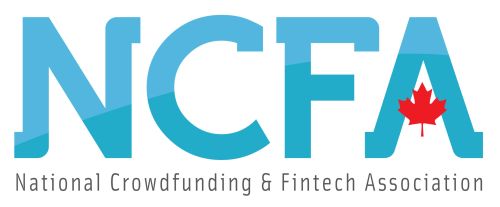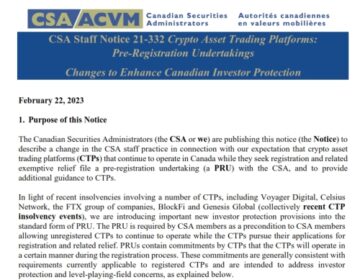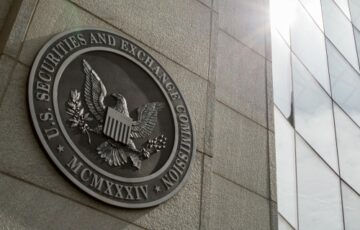Privacy | April 22, 2024

 Image: Unsplash/Bernard Hermant
Image: Unsplash/Bernard HermantFront Line of Digital Privacy Debates: FISA 702, U.S. Bank Secrecy Act, and IP Addresses
The landscape of digital privacy has seen significant legal and ethical transformations, raising critical debates about citizen rights and data security. Below we look at three debates in the that illustrate the ongoing battle for privacy: the U.S. Senate’s controversial reauthorization of Section 702 of the Foreign Intelligence Surveillance Act (FISA), the U.S. Bank Secrecy Act’s implications, ad the Canadian Supreme Court’s landmark decision on IP address privacy. Each debate offers a unique perspective on the challenges and implications of maintaining privacy in a digitalized world.
1. The Reauthorization of FISA’s Section 702 in the U.S. Senate
The U.S. Senate’s reauthorization of Section 702 of the Foreign Intelligence Surveillance Act (FISA) continues to ignite fierce debates over national security and privacy rights. Section 702 allows the government to collect and analyze foreign communications, often sweeping up information from U.S. citizens without a warrant. Although proponents argue this is critical for national security, critics fear the potential for abuse and the lack of safeguards against unwarranted surveillance. The recent legislative changes, which include a shorter reauthorization period for 2 years and some reforms, reflect ongoing tensions between ensuring security and protecting civil liberties.
See: Surveillance Capitalism: Policymakers must put an end to abusive practices
Proponents of Section 702 of the Foreign Intelligence Surveillance Act hold firm to the belief that it’s an indispensable asset for the security of the United States. They argue that Section 702 is critical in preempting potential terrorist activities by enabling surveillance on foreign suspects’ communications. Supporters underline the value of swift action, enabled by Section 702’s provision for surveillance without the time-consuming process of securing warrants. There are cited examples where intelligence gathered under Section 702 was instrumental in protecting national interests, reinforcing its perceived necessity.
Conversely, the opposition to Section 702 voices significant concerns about the implications for personal freedoms and the potential overreach of surveillance practices. A major concern is the incidental capture of communications involving U.S. citizens, which often occurs without their knowledge or consent, potentially leading to privacy infringements. Detractors argue that Section 702 operates with inadequate oversight, creating a fertile ground for misuse of power. There’s a unnerving worry that the collected data could be exploited for non-security purposes, including political surveillance or other inappropriate activities.
The tug-of-war over Section 702 fuels demand for stricter regulations to ensure more robust oversight and a better balance between security imperatives and privacy rights. The discussion around surveillance practices has the potential to reduce trust in governmental institutions and intelligence operations. The global reach of Section 702 can strain international relationships, especially concerning data privacy and human rights standards.
2. The U.S. Bank Secrecy Act: Financial Privacy Under Scrutiny

 Image: Freepik/wirestock
Image: Freepik/wirestockIn a recent article by the Cato Institute title ‘The Bank Secrecy Act Is a Bigger Threat than FISA‘ debates the the U.S. Bank Secrecy Act (BSA), which was originally enacted to combat money laundering and financial fraud, has evolved into a tool with profound implications for privacy and civil liberties. Critics argue that the act’s requirement for financial institutions to report detailed information about their clients’ transactions creates a surveillance environment that infringes on individual privacy. This extensive data collection, intended to protect against financial crimes, raises concerns about the potential misuse of sensitive personal information and the risk of government overreach.
See: Opinion: The Financial Surveillance System May Be Less a Tool for Crime Prevention than a Means of Bureaucratic Ass Covering
Advocates of the Bank Secrecy Act (BSA) argue that it serves as a fundamental safeguard for the financial system by helping to detect and prevent illegal activities like money laundering and fraud. The BSA requires financial institutions to maintain detailed records and report large cash transactions, which helps law enforcement identify and stop illicit financial flows. Supporters believe that the BSA enforces discipline and accountability in the financial sector, promoting transparency and trust in the financial system. The act is seen as a critical tool in the broader context of national security, aiming to prevent criminal organizations and terrorists from exploiting the financial system.
Critics of the BSA contend that the act leads to excessive government surveillance of individuals’ financial transactions, infringing on personal privacy rights. The compliance requirements can be onerous and costly for financial institutions, particularly smaller ones, potentially stifling innovation and growth. Further, there is skepticism about the effectiveness of the BSA in stopping financial crimes, with some suggesting that it might be used disproportionately against smaller, less significant cases rather than larger criminal enterprises.
Calls for reform are growing, with some advocating for changes to make the act less invasive and more focused on genuine threats. Canadian AML/KYC laws have recently undergone a major overhaul published in 2023 with a raft of more changes being announced in the 2024 federal budget to combat financial crime. Financial institutions must navigate the complex landscape of compliance, which can influence their operational strategies and the services they offer. The debate also touches on larger issues of civil liberties, questioning the balance between security and the right to privacy in the financial domain.
3. The Canadian Supreme Court Upholds Privacy in IP Addresses

 Image: Freepik/kjpargeter
Image: Freepik/kjpargeterIn a defining move, the Canadian Supreme Court recently ruled that IP addresses should be considered private information, as they can reveal substantial details about an individual’s online activities. This decision, stemming from the case R. v. Bykovets, emphasizes that law enforcement agencies must obtain a court order before accessing IP address data. The ruling is a significant step in protecting online privacy and also sets a precedent for how digital information should be treated legally, reinforcing the notion that privacy rights must evolve with technological advancements.
See: 5 Billion Profiles: Class Action Lawsuit Accuses Oracle of Privacy Breach and “Global Surveillance”
Supporters of treating IP addresses as private information argue that these digital identifiers can reveal extensive details about a person’s online activities, potentially exposing sensitive personal information. They believe that recognizing IP addresses as private information aligns with broader privacy rights, ensuring individuals’ online activities are shielded from unwarranted scrutiny. The Supreme Court’s ruling sets a significant precedent for digital privacy, establishing clear guidelines for how such data should be legally handled. Protecting IP addresses helps build trust in digital services, as users feel more secure knowing their online behaviors are not easily monitored or exploited.
Some argue against stringent privacy protections for IP addresses, mainly from operational and security perspectives. The need for court orders to access IP addresses could hinder timely law enforcement investigations, potentially allowing criminal activities to go unchecked. ISPs and other digital service providers often use IP address data to monitor for security breaches or abuse, and restricting access could complicate these efforts. Implementing stringent privacy measures for IP addresses might impose additional regulatory burdens on businesses, increasing their operational costs.
This ruling prompts a shift in how businesses and law enforcement agencies operate, requiring adjustments in data handling and processing practices to comply with the new privacy standards. The decision highlights the ongoing challenge of balancing individual privacy rights with broader security and operational needs. As a precedent in one of the world’s most digitally integrated societies, this ruling could influence international norms and practices regarding digital privacy.
In Conclusion
Privacy debates from the U.S. and Canada highlight a global struggle to balance privacy with security and transparency in the digital age. The battle for privacy is not just about protecting personal information but is also a broader fight for individual freedoms and democratic values in the 21st century. This discussion encourages policymakers, legal experts, and the public to consider how laws and regulations can be shaped to safeguard privacy while addressing the legitimate needs of security and governance.
Some links you may like:
2023 Data Privacy in North America – Year in Review
AI and Children’s Privacy and Consent
Can Privacy and Financial Regulation Co-exist?
ChatGPT Faces Investigation by Canadian Privacy Commissioner
Unveiling the Massive Taxpayer Privacy Breach: Senators Demand DOJ Probe

 The National Crowdfunding & Fintech Association (NCFA Canada) is a financial innovation ecosystem that provides education, market intelligence, industry stewardship, networking and funding opportunities and services to thousands of community members and works closely with industry, government, partners and affiliates to create a vibrant and innovative fintech and funding industry in Canada. Decentralized and distributed, NCFA is engaged with global stakeholders and helps incubate projects and investment in fintech, alternative finance, crowdfunding, peer-to-peer finance, payments, digital assets and tokens, artificial intelligence, blockchain, cryptocurrency, regtech, and insurtech sectors. Join Canada’s Fintech & Funding Community today FREE! Or become a contributing member and get perks. For more information, please visit: www.ncfacanada.org
The National Crowdfunding & Fintech Association (NCFA Canada) is a financial innovation ecosystem that provides education, market intelligence, industry stewardship, networking and funding opportunities and services to thousands of community members and works closely with industry, government, partners and affiliates to create a vibrant and innovative fintech and funding industry in Canada. Decentralized and distributed, NCFA is engaged with global stakeholders and helps incubate projects and investment in fintech, alternative finance, crowdfunding, peer-to-peer finance, payments, digital assets and tokens, artificial intelligence, blockchain, cryptocurrency, regtech, and insurtech sectors. Join Canada’s Fintech & Funding Community today FREE! Or become a contributing member and get perks. For more information, please visit: www.ncfacanada.org
Related Posts
- SEO Powered Content & PR Distribution. Get Amplified Today.
- PlatoData.Network Vertical Generative Ai. Empower Yourself. Access Here.
- PlatoAiStream. Web3 Intelligence. Knowledge Amplified. Access Here.
- PlatoESG. Carbon, CleanTech, Energy, Environment, Solar, Waste Management. Access Here.
- PlatoHealth. Biotech and Clinical Trials Intelligence. Access Here.
- Source: https://ncfacanada.org/the-battle-for-privacy-in-the-digital-age/
- :has
- :is
- :not
- :where
- $UP
- 150
- 2%
- 200
- 2018
- 2023
- 21st
- 22
- 225
- 300
- 32
- 5
- 62
- a
- About
- abuse
- access
- accessing
- Act
- Action
- activities
- Ad
- Additional
- address
- addresses
- addressing
- adjustments
- advancements
- advocating
- affiliates
- against
- age
- agencies
- AI
- Aiming
- Aligns
- Allowing
- allows
- also
- alternative
- alternative finance
- Although
- america
- an
- analyze
- and
- announced
- April
- ARE
- argue
- around
- article
- artificial
- artificial intelligence
- AS
- asset
- Assets
- At
- Balance
- Bank
- bank secrecy act
- Bank Secrecy Act (BSA)
- Battle
- BE
- become
- before
- behaviors
- being
- belief
- believe
- below
- Better
- between
- bigger
- Billion
- blockchain
- breach
- breaches
- broader
- BSA
- budget
- build
- build trust
- bureaucratic
- businesses
- but
- by
- cache
- CAN
- Canada
- Canadian
- capitalism
- capture
- case
- cases
- Cash
- Century
- challenge
- challenges
- Changes
- ChatGPT
- cited
- citizen
- Citizens
- civil
- civil liberties
- class
- Class Action
- class action lawsuit
- clear
- clients
- closely
- CNN
- collect
- collected
- collection
- combat
- commissioner
- Communications
- community
- complex
- compliance
- comply
- Concern
- Concerns
- consent
- Consider
- considered
- contend
- context
- continues
- controversial
- cornell
- Costs
- could
- Court
- covering
- create
- creates
- Creating
- Crime
- Crimes
- Criminal
- critical
- Critics
- Crowdfunding
- cryptocurrency
- data
- data privacy
- debate
- debates
- decentralized
- decision
- defining
- Demand
- democratic
- detailed
- details
- detect
- detractors
- digital
- digital age
- Digital Assets
- digital privacy
- digital services
- digitally
- discipline
- discussion
- disproportionately
- distributed
- DoJ
- domain
- each
- easily
- ecosystem
- Education
- efforts
- emphasizes
- enabled
- enabling
- encourages
- end
- enforcement
- engaged
- ensure
- ensuring
- enterprises
- Environment
- especially
- establishing
- Ether (ETH)
- ethical
- evolve
- evolved
- examples
- excessive
- experts
- exploited
- exploiting
- extensive
- faces
- fear
- Federal
- feel
- fertile
- fierce
- fight
- finance
- financial
- financial crimes
- financial innovation
- Financial institutions
- financial privacy
- financial regulation
- financial system
- fintech
- Firm
- Flows
- focused
- For
- foreign
- fraud
- freedoms
- from
- fuels
- fundamental
- funding
- funding opportunities
- further
- gathered
- genuine
- get
- Global
- Go
- governance
- Government
- government overreach
- governmental
- Ground
- Growing
- Growth
- guidelines
- handled
- Handling
- Have
- helping
- helps
- High
- Highlight
- highlights
- hinder
- hold
- How
- HTML
- http
- HTTPS
- human
- human rights
- identifiers
- identify
- Ignite
- Illegal
- illicit
- illustrate
- image
- implementing
- implications
- impose
- in
- inappropriate
- incidental
- include
- Including
- increasing
- indispensable
- individual
- individuals
- industry
- influence
- information
- infringements
- Innovation
- innovative
- Institute
- institutions
- instrumental
- Insurtech
- integrated
- Intelligence
- intended
- International
- into
- invasive
- investigation
- investment
- involving
- IP
- IP Address
- IP addresses
- issues
- IT
- ITS
- Jan
- jpg
- just
- Knowing
- knowledge
- Lack
- landmark
- landscape
- large
- larger
- Laundering
- Law
- law enforcement
- Laws
- lawsuit
- leading
- Leads
- Legal
- legal experts
- legally
- Legislative
- legitimate
- less
- like
- Line
- links
- Look
- mainly
- maintain
- maintaining
- major
- make
- Market
- massive
- max-width
- May..
- means
- measures
- member
- Members
- might
- misuse
- money
- Money Laundering
- Monitor
- monitored
- more
- most
- move
- must
- National
- national security
- Navigate
- necessity
- needs
- networking
- New
- norms
- North
- north america
- Notion
- obtain
- of
- offer
- Offers
- often
- on
- ONE
- onerous
- ongoing
- online
- online privacy
- operate
- operates
- operational
- Opinion
- opportunities
- or
- oracle
- order
- orders
- organizations
- originally
- Other
- over
- Overhaul
- overreach
- Oversight
- particularly
- partners
- payments
- peer to peer
- perceived
- period
- perks
- person
- personal
- personal information
- perspective
- perspectives
- plato
- Plato Data Intelligence
- PlatoData
- please
- policymakers
- political
- potential
- potentially
- practices
- Precedent
- prevent
- Prevention
- privacy
- Privacy Breach
- private
- private information
- probe
- process
- processing
- Profiles
- profound
- projects
- promoting
- prompts
- proponents
- protect
- protecting
- providers
- provides
- provision
- public
- published
- purposes
- put
- raises
- rather
- reach
- recent
- recently
- recognizing
- records
- reduce
- reflect
- reform
- regarding
- Regtech
- Regulation
- regulations
- regulatory
- Relationships
- report
- requirement
- Requirements
- restricting
- reveal
- review
- right
- rights
- Risk
- robust
- ruled
- ruling
- s
- safeguard
- safeguards
- scrutiny
- Section
- Sectors
- secure
- security
- security breaches
- seen
- Senate
- SENATORS
- sensitive
- serves
- service
- service providers
- Services
- Sets
- shaped
- shift
- shorter
- should
- significant
- smaller
- some
- stakeholders
- standards
- States
- Step
- Stewardship
- Stop
- stopping
- strategies
- stricter
- stringent
- Struggle
- substantial
- such
- supporters
- Supreme
- Supreme Court
- surveillance
- SWIFT
- system
- Taxpayer
- technological
- tensions
- terrorist
- terrorists
- than
- that
- The
- the security
- the world
- their
- There.
- These
- they
- this
- thousands
- threat
- three
- time-consuming
- timely
- Title
- to
- today
- Tokens
- tool
- touches
- Transactions
- transformations
- Transparency
- treated
- treating
- Trust
- u.s.
- U.S. Bank
- under
- undergone
- underline
- unique
- United
- United States
- Unsplash
- unveiling
- unwarranted
- use
- used
- users
- value
- Values
- vibrant
- Visit
- VOICES
- Warrant
- was
- we
- which
- while
- Wikipedia
- with
- without
- works
- world
- worry
- year
- years
- you
- zephyrnet












